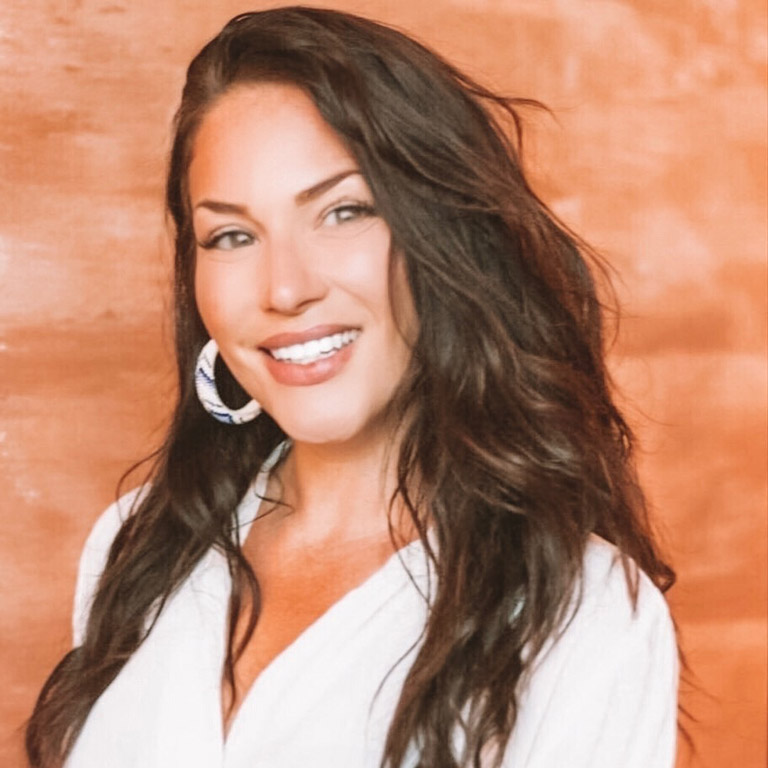Feature photo of Nikki Sanchez; all other photos by Nikki Sanchez
By Nikki Sanchez
@nikkilaes
The streets of downtown Washington, DC were filled with medicine this weekend. On Friday morning, the fragrant smells of sage, copal and palo santo filled the air of the Nation’s Capital. The medicines were lit early in the morning on the steps of the Department of Interior Affairs, as a prayer service started off the inaugural Indigenous Peoples March; the largest inter-tribal gathering of Indigenous Nations in over 50 years. The march and rally warranted the attention of 10,000 attendees, including representatives from Australia, Samoa, Hawaii, Canada, Aotearoa, the Caribbean, the Congo, Papua New Guinea, Central, and South American tribes and even included the Buddhist community.
As the prayers and songs set the tone for the day, dozens of caravans, buses, and motorcycle convoys continued to arrive from various tribes as far as Arizona, North and South Dakota, Texas, and everywhere in between. Non-Indigenous allies and multi-faith representatives were also in attendance. Following an hour of prayer, the march toward the Lincoln Memorial began, marshaled by the Red Rum Motorcycle club, who stood formidable and proud in their American Indian Movement (AIM) style black and red leather jackets. I was invited to be there as one of nearly 100 speakers, performers and ceremonial practitioners who guided the day. Indigenous elders, community leaders, and activists shared the platform with well known-Indigenous and social justice leaders; including newly elected congresswoman Deb Haaland and Idaho House of Representatives Paulette Jordan (two of the first Native American women to be elected to their posts), National co-chairs of the Women’s March Carmen Perez and Linda Sarsour, former Miss Universe Ashley Callingbull and Standing Rock water protector father-daughter duo, Chase and Tokata Iron Eyes among others.
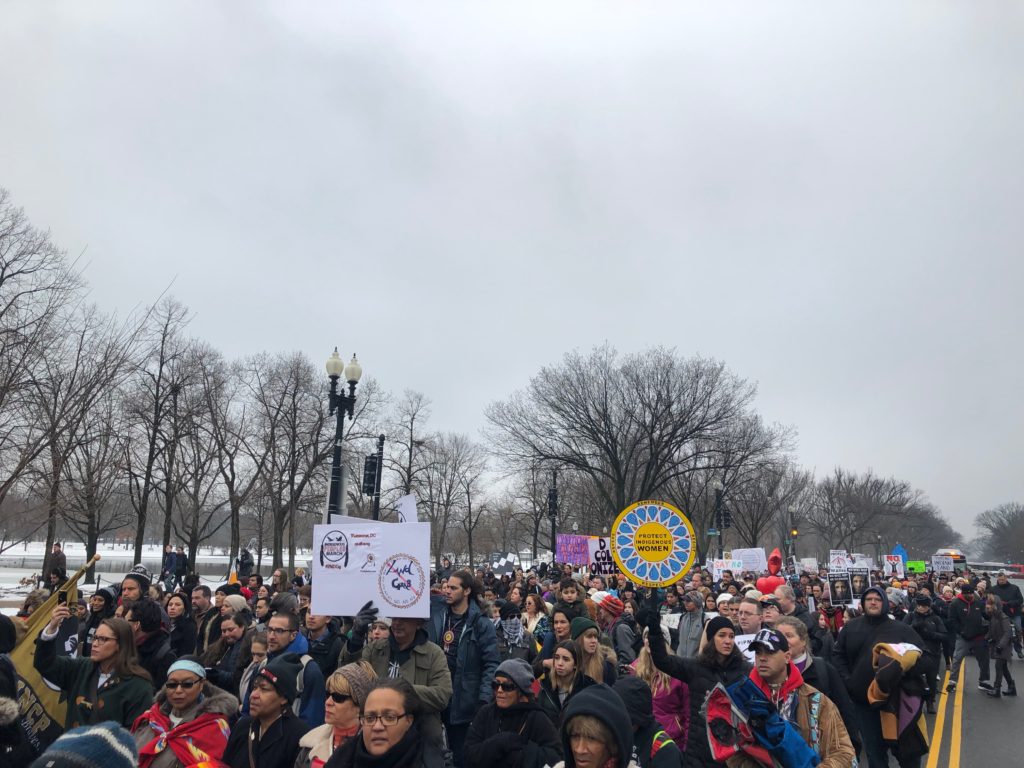
The event was organized by the Indigenous Peoples Movement (IPM) – a grassroots coalition of organizers from across the globe at state and tribal levels dedicated to raising awareness on Indigenous issues and eliminating the division of Indigenous nations from working collectively in support of one another (also a colonial legacy). IPM created the event to unite Indigenous people across nations on issues that disproportionately impact our communities; including environmental racism, human rights violations, land theft, forced assimilation, inhumane immigration policies, missing and murdered Indigenous women and girls, as well as protecting and holding onto our culture and sovereignty as Indigenous people.
The injustices that Indigenous communities of the world have endured are nothing new: the ongoing waves of genocide, erasure, and oppression have taken on various forms over the past 500 years under colonial rule. The IPM is timely as these challenges have been exasperated in recent years by the recent global wave of right-wing extremist politics that has incited flagrant racism and the worsening impacts of climate change (Indigenous people make up 5 per cent of the global population but protect over 80 per cent of the world’s biodiversity).
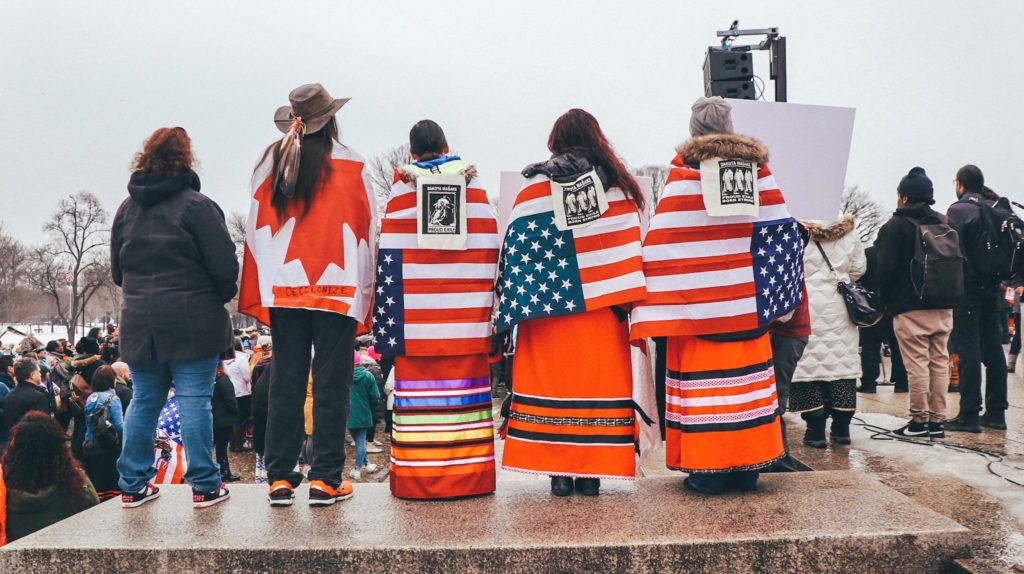
Many brought messages of hope and unity while others made urgent calls to action on issues that are taking Indigenous lives. Roxanne White of the Yakima Nation spoke about the 25,000 cases of missing and murdered Indigenous women in North America, highlighting the magnitude of the issue by asking the crowd to call out some of the names of missing and murdered family members of the audience. Héritier Lumumba of Congo called on the crowd to raise our smartphones in the air and then informed us that we had blood on our hands connected to the daily death toll that conflict minerals take in his homelands. Representatives from the Amazon conveyed the immediate threat Amazonian tribes face under the recently elected 38th Brazilian president Jair Bolsonaro who has blatantly stated that he has no interest in “defending land for Indians,” defining his plans for full-scale resource extraction in the Amazon Rainforest despite the fatal implications this will have for uncontacted tribes (not to mention global warming).
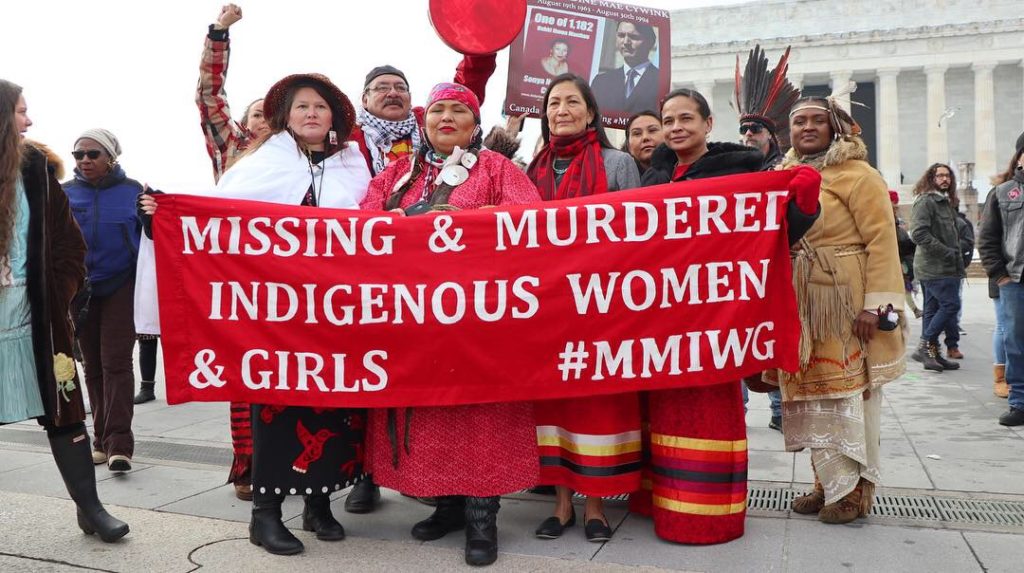
“It shows that the trauma and the atrocities that happened to Native Americans is and has happened to Indigenous peoples everywhere. The same colonial mindset, the same borders were imposed everywhere and Indigenous people are still suffering from the trauma of that and our children are still suffering from the trauma of that,” stated 15-year-old Standing Rock youth leader Tokata Iron Eyes following the march. When I asked her what it meant to see global Indigenous nations coming together, she responded, “To see that the support system that we think we have is so much larger is so beautiful because that means that wherever we are, now we are home, because we have ties everywhere.”
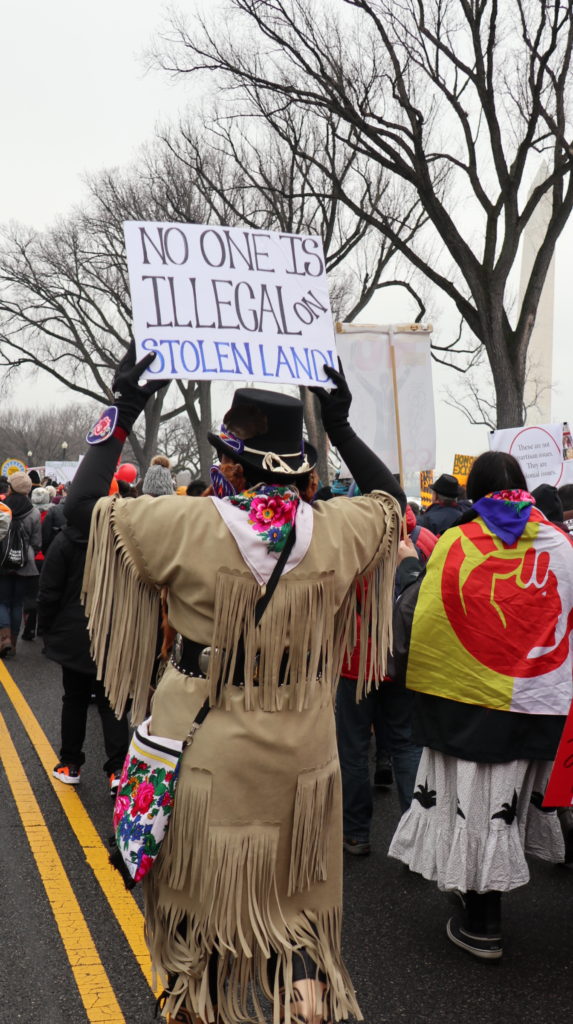
Despite the cold, the rally lasted all day amidst the softly falling snow the national capital quieted by Trump’s government shutdown. As the event came to a close, the sun broke through inspiring a spontaneous round dance. As drummers sang the AIM song, the crowd joined hands and chanted, “we are still here.”
Learn more and get involved at Indigenouspeoplesmovement.com/

Nikki Sanchez is a Pipil/Maya and Irish/Scottish academic, Indigenous media maker and environmental educator. Nikki holds a masters degree in Indigenous Governance and is presently completing a PhD with a research focus on emergent Indigenous media. She was the acting David Suzuki Foundation “Queen of Green” from 2016-2018 where her work centered on digital media creation to provide sustainable solutions for a healthy planet, as well as content creation to bring more racial inclusivity into the environmental movement. Her most recent media project was the VICELAND series “RISE” which focused on global Indigenous resurgence. RISE debuted at Sundance in February 2017 and has received global critical acclaim, recently winning the Canadian Screen Guild Award for Best Documentary series. For the past decade, Nikki has also worked as an Indigenous environmental educator, curriculum developer, and media consultant. She currently runs an independent consulting company which specializes in decolonial and equity training for businesses and institutions.

